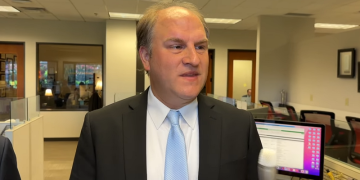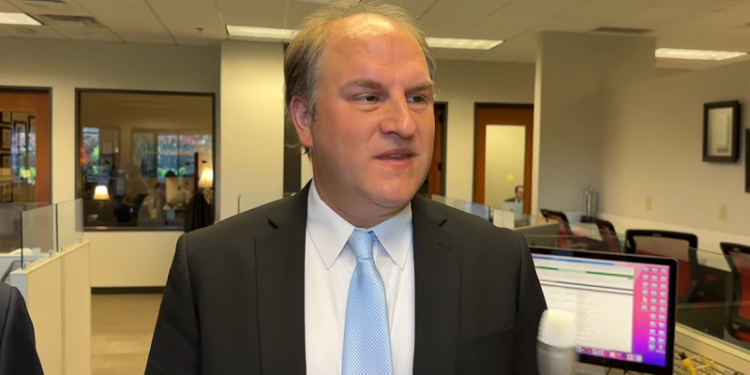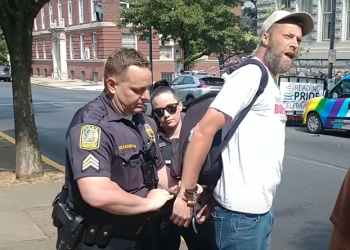The Supreme Court vacated and remanded the case of Gerald Groff, the former Lancaster County postal service worker who refused to work on Sundays, thus sending the case back to lower courts.
Though Groff’s overall case is not over, the Supreme Court decision is considered a victory for Groff, as the ruling potentially makes it harder for employers to dismiss religious requests.
While working for the United States Postal Service (USPS) in Lancaster County, Groff faced the challenge of working on Sundays when USPS began facilitating Sunday deliveries for Amazon. To avoid the Sunday work requirement, Groff transferred to a rural route without Sunday deliveries.
However, when Amazon deliveries began at the rural station, Groff remained unwilling to labor on Sunday. Eventually, Groff received “progressive discipline” for failing to work on Sundays, and he resigned in 2018.
Groff then sued the postal service under Title VII of the Civil Rights Act of 1964, asserting that USPS could have accommodated his request to not work on Sundays “without undue hardship on the conduct of [USPS’s] business.”

Lower courts ruled against Groff and in favor of USPS, with the Third Circuit finding that exempting Groff from Sunday work had “imposed on his coworkers, disrupted the workplace and workflow, and diminished employee morale.”
On June 29, the Supreme Court vacated the decision of lower courts and remanded the case, sending it back to lower courts to reconsider Groff’s suit based on the higher court’s understanding of the facts of the case.
The issue of requesting certain days off for religious beliefs is not novel in American courts. A Supreme Court case in 1977 (Hardison v. Trans World Airlines) found that the airline was not required to violate its seniority system to make the requested accommodation for Hardison, who requested to not work Saturdays due to religious beliefs.
In a syllabus issued by the Supreme Court in the Groff case, the Court said it “understands Hardison to mean that ‘undue hardship’ is shown when a burden is substantial in the overall context of an employer’s business.”
The Court ruled that “‘undue hardship’ means something very different from a burden that is merely more than de minimis, i.e., ‘very small or trifling.’” The Court referenced Hardison and noted that “substantial additional costs” or “substantial expenditures” would need to be present for the hardship to be considered “undue.”
The ruling effectively sets aside the “de minimis” standard set more than 45 years ago, thus requiring employers to demonstrate not simply “minimal” hardship, but substantial hardship in denying religious accommodations.
Justice Alito delivered the opinion for the unanimous Court, saying that their ruling clarifies “the Title VII undue-hardship standard” and thus gives the lower courts a “clarified standard” to apply in the Groff case.
“Without foreclosing the possibility that USPS will prevail, we think it appropriate to leave it to the lower courts to apply our clarified context-specific standard, and to decide whether any further factual development is needed,” Alito wrote.
For a lower court to rule against Groff, it will need to be demonstrated that Groff’s request placed “substantial” hardship on his employer, not merely a “very small” hardship.
“I hope this decision allows others to be able to maintain their convictions without living in fear of losing their jobs because of what they believe,” Groff said in a statement following the ruling.
Kelly Shackelford, Chief Counsel with First Liberty Institute, called the ruling “a major win” and a “total shift in the landscape in the workplace,” adding that the “standard has been wrong” for 46 years.
“Every person of faith who works in the country that lost their protection – by Gerald being faithful, God has used this to restore that to everybody who works across the country,” Shackelford said. “This is really significant.”
The American Postal Workers Union, however, issued a brief to the court stating that a ruling in favor of Groff would create a “religious preference” for scheduling work on the weekend – something that could disadvantage other workers who do not share the same religious beliefs.
In a statement from Postal Service spokeswoman Felicia Lott issued after the ruling, Lott said she expects USPS to win the case, even with the clarifications from the Supreme Court.




























